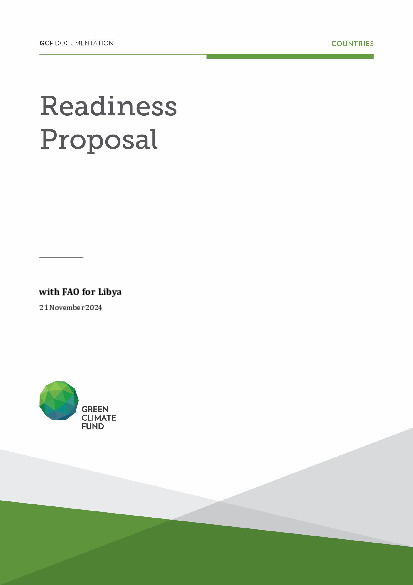Strengthening Governance and Institutional Framework for Integrated Climate-change, Water, Energy and Food Security Strategies in Libya

Strengthening Governance and Institutional Framework for Integrated Climate-change, Water, Energy and Food Security Strategies in Libya
The proposed Readiness project leverages past and current initiatives to enhance stakeholder coordination, conduct baseline studies, and promote an open-source database to address climate change challenges in Libya's water, energy, food, and ecosystems sectors, while integrating climate risk into national strategies and policies.
The proposed readiness project aims to:
- Strengthen the LIWEF-Libya framework and integrate an ecosystems management component to become the LIWEFE-Libya framework
- Introduce a climate risk approach to the management of the water-energy-food-ecosystems nexus aligned with current reforms andnational strategies;
- Develop stakeholder coordination mechanisms for the agriculture,water, energy, and environment sectors, including relevant national institutions, the private sector, Civil Society Organizations (CSOs) and academia;
- Develop baseline studies and climate risk and vulnerability assessment that serve as pillars for future strategies and sectorial strategic frameworks;
- Further empower the use of the recently established MerWat-Libya Geospatial Platform through the project’s activities of collecting, sharing, and dissemination of knowledge between water, energy, environment and food sectors on climate change impacts and scenarios in the country.
- Develop a WEFE-Nexus concept note and pre-feasibility study.